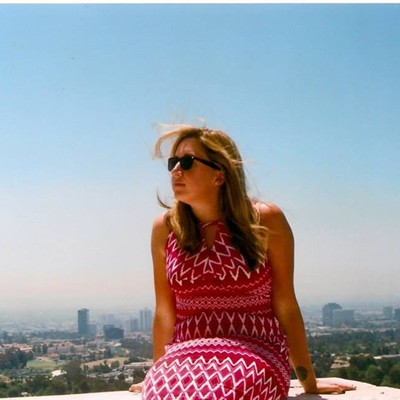Now 65, Hirschman became involved with the street medic community in her late teens, before the group that provided medical aid at protests even had the "street medic" label. The Medical Committee For Human Rights had recruited American health workers to treat people demonstrating in the South as part of the Civil Rights Movement. But ranks for the professionals were soon dwarfed by their patients, who soon took lessons in the skills themselves. And after she graduated nursing school, Hirschman began offering classes to these activists. It was after taking one of those classes that Rosen spread the term "street medics."
Being a street medic comes with risks. It's not uncommon for medics to be arrested while they're helping at protests. Thanks to a wrist anomaly that made it tough to cuff her and even harder to keep her cuffed, Hirschman acted as the designated sacrificial medic on many of her early actions. Half a century after the information would be of use to police, Hirschman admits that she slipped out of her fair share of paddy wagons."Police always think, 'They must be planning their own violence because they brought their own medics,' which is totally wrong," Hirschman says. She can't remember the exact total of her arrest history -- "too much pepper spray really blasts your memory" -- but it's higher than ten. However, she has no convictions on her record.
She continues to field official inquiries about her early actions. A few months ago, Hirschman earned a visit from two FBI officers, who asked about her trainings and early peers. She says she told them only about medics who have passed away, and at this point, there have been many. Rosen died in 2007.
"All of us to a certain extent are anti-establishment, and all of us absolutely have political motivations for what we do. But we're not all anarchists, and just because some of us are doesn't mean we hate all the police," she says. "Some of us are old respectable people who have work and shit, and most of us are looking for a more just, fair and peaceful world." She laughs. "I doubt we have a lot of Tea Partiers."
Medics don't have to be adrenaline junkies, but it certainly helps, says Hirschman, who also has a rescue complex. Early medics often spent as much time healing themselves as their patients. Other than a few new technologies, adaptations to chemical weapons and a focus on spinal care, much of what street medics learn today is the same as what they were taught in the '60s. There's still not a lot you can do when someone is bleeding except put pressure on the wound and wait for the ambulance.
"The skills are the same, but the world has changed," Hirschman says. "I like to think that we're all motivated in some way by the same things, though: creating peace. That's what we do, little by little, every time we run as a medic. If it's ever world-spread, they won't need us anymore."
Because she trained Rosen -- in exchange for kung-fu lessons -- Hirschman is regarded as a grandmother of sorts to Colorado Street Medics. "My being requires that I am useful," Hirschman says. "Were there sacrifices? Sure. But looking back at it from age 65, the satisfaction is huge. There have not been a shitload of sell-outs, and that's not too shabby."
Did you know Colorado Street Medics founder Doc Rosen? We'd like to hear more about him. Post your memories in the comments section below, or e-mail the author at [email protected].
More from our Politics archive: "P&L Printing expands with a new infoshop devoted to revolutionary and oppressed voices."











